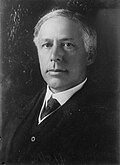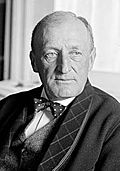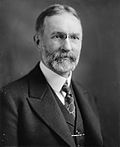| Case Name | Page and year | Opinion of the Court | Concurring opinion(s) | Dissenting opinion(s) | Lower Court | Disposition |
|---|
| United States ex rel. Skinner and Eddy Corporation v. McCarl | 1 (1927) | Brandeis | none | none | D.C. Cir. | affirmed |
| Mammoth Oil Company v. United States | 13 (1927) | Butler | none | none | 8th Cir. | affirmed |
| Smallwood v. Gallardo | 56 (1927) | Holmes | none | none | 1st Cir. | reversed |
| Gallardo v. Santini Fertilizer Company | 62 (1927) | Holmes | none | none | D.P.R. | reversed |
| Atlantic Coast Line Railroad Company v. Southwell | 64 (1927) | Holmes | none | none | N.C. | reversed |
| Baltimore and Ohio Railroad Company v. Goodman | 66 (1927) | Holmes | none | none | 6th Cir. | reversed |
| Fairmont Creamery Company v. Minnesota | 70 (1927) | Taft | none | none | original | taxing costs denied |
| Lum v. Rice | 78 (1927) | Taft | none | none | Miss. | affirmed |
| Compañía General de Tabacos v. Collector | 87 (1927) | Taft | none | Holmes | Phil. | multiple |
| Wickwire v. Reinecke | 101 (1927) | Taft | none | none | 7th Cir. | reversed |
| Segurola v. United States | 106 (1927) | Taft | none | none | 1st Cir. | affirmed |
| Simmons v. Swan | 113 (1927) | Holmes | none | none | 1st Cir. | reversed |
| Mercantile Trust Company v. Wilmot Road District | 117 (1927) | Holmes | none | none | 8th Cir. | reversed |
| Leach and Company v. Peirson | 120 (1927) | Holmes | none | none | 3d Cir. | reversed |
| Millsaps College v. City of Jackson | 129 (1927) | McReynolds | none | none | Miss. | affirmed |
| Gulf, Colorado and Santa Fe Railway Company v. Moser | 133 (1927) | McReynolds | none | none | Tex. Civ. App. | reversed |
| Northwestern Mutual Life Insurance Company v. Wisconsin | 136 (1927) | McReynolds | none | none | Wis. | reversed |
| Blodgett v. Holden | 142 (1927) | McReynolds | Holmes | none | 6th Cir. | certification |
| United States v. Berkeness | 149 (1927) | McReynolds | none | none | 9th Cir. | affirmed |
| St. Louis–San Francisco Railway Company v. Spiller | 156 (1927) | Brandeis | none | none | original | amendment denied |
| Chicago, Burlington and Quincy Railroad Company v. Wells Dickey Trust Company | 161 (1927) | Brandeis | none | none | Minn. | reversed |
| City of Hammond v. Schappi Bus Line, Inc. | 164 (1927) | Brandeis | none | none | 7th Cir. | decree modified |
| City of Hammond v. Farina Bus Line Transportation Company | 173 (1927) | Brandeis | none | none | 7th Cir. | decree modified |
| Mason v. Routzahn | 175 (1927) | Brandeis | none | none | 6th Cir. | reversed |
| News Syndicate Company v. New York Central Railroad Company | 179 (1927) | Butler | none | none | 7th Cir. | certification |
| Atwater and Company v. United States | 188 (1927) | Butler | none | none | Ct. Cl. | affirmed |
| Marron v. United States | 192 (1927) | Butler | none | none | 9th Cir. | affirmed |
| Steele v. Drummond | 199 (1927) | Butler | none | none | 5th Cir. | affirmed |
| Washington ex rel. Stimson Lumber Company v. Kuykendall | 207 (1927) | Butler | none | none | Wash. | affirmed |
| Mellon v. O'Neil | 212 (1927) | Sanford | none | none | N.Y. Sup. Ct. | dismissed |
| Willcuts v. Milton Dairy Company | 215 (1927) | Sanford | none | none | 8th Cir. | reversed |
| Blair v. Oesterlein Machine Company | 220 (1927) | Stone | none | none | D.C. Cir. | affirmed |
| Tucker v. Alexander | 228 (1927) | Stone | none | none | 8th Cir. | reversed |
| Heiner v. Colonial Trust Company | 232 (1927) | Stone | none | none | 3d Cir. | reversed |
| Kansas City Southern Railway Company v. Ellzey | 236 (1927) | Stone | none | none | 5th Cir. | reversed |
| Lewellyn v. Electricity Reduction Company | 243 (1927) | Stone | none | none | 3d Cir. | reversed |
| Equitable Trust Company v. Rochling | 248 (1927) | Stone | none | none | 2d Cir. | reversed |
| Latzko v. Equitable Trust Company | 254 (1927) | Stone | none | none | 2d Cir. | reversed |
| Atlantic Coast Line Railroad Company v. Standard Oil Company | 257 (1927) | Taft | none | none | 6th Cir. | multiple |
| Bothwell v. Buckbee Mears Company | 274 (1927) | Brandeis | none | none | Minn. | affirmed |
| New Mexico v. Texas | 279 (1927) | Sanford | none | none | original | boundary set |
| Robins Dry Dock Repair Company v. Flint | 303 (1927) | Holmes | none | none | 2d Cir. | reversed |
| Gambino v. United States | 310 (1927) | Brandeis | none | none | 2d Cir. | reversed |
| Temco Electric Motor Company v. Apco Manufacturing Company | 319 (1928) | Taft | none | none | 5th Cir. | reversed |
| Richmond Screw Anchor Company v. United States | 331 (1928) | Taft | none | none | Ct. Cl. | reversed |
| United States v. Murray | 347 (1928) | Taft | none | none | 5th Cir. | multiple |
| Equitable Trust Company v. First National Bank | 359 (1928) | Holmes | none | Stone | 2d Cir. | reversed |
| Barber Asphalt Paving Company v. Standard Asphalt and Rubber Company | 372 (1928) | VanDevanter | none | none | 7th Cir. | reversed |
| The Steel Trader | 388 (1928) | McReynolds | none | none | 5th Cir. | reversed |
| Hopkins v. Southern California Telephone Company | 393 (1928) | McReynolds | none | none | 9th Cir. | affirmed |
| Cleveland, Cincinnati, Chicago and St. Louis Railway Company v. United States | 404 (1928) | Brandeis | none | none | N.D. Ill. | affirmed |
| Emergency Fleet Corporation v. Western Union Telegraph Company | 415 (1928) | Brandeis | none | none | D.C. Cir. | reversed |
| Missouri Pacific Railroad Company v. Aeby | 426 (1928) | Butler | none | none | Mo. | reversed |
| N. and G. Taylor Company, Inc. v. Anderson | 431 (1928) | Butler | none | none | 7th Cir. | affirmed |
| Aetna Life Insurance Co. v. Hyde | 440 (1928) | Butler | none | none | Mo. | dismissed |
| Roche v. McDonald | 449 (1928) | Sanford | none | none | Wash. | reversed |
| Gulf, Mobile and Northern Railroad Company v. Wells | 455 (1928) | Sanford | none | none | Miss. | reversed |
| Mellon v. Arkansas Land and Lumber Company | 460 (1928) | Sanford | none | none | Ark. | reversed |
| Jackson v. Steamship Archimedes | 463 (1928) | Sanford | none | none | 2d Cir. | affirmed |
| Ingram Day Lumber Company v. McLouth | 471 (1928) | Stone | none | none | 6th Cir. | reversed |
| Nagle v. Loi Hoa | 475 (1928) | Stone | none | none | 9th Cir. | reversed |
| E.W. Bliss Company v. United States | 509 (1927) | per curiam | none | none | Ct. Cl. | reversed |
|













